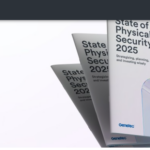Acronis H1 2024 Cyberthreats Report Highlights 293% Surge in Email Attacks

Acronis, a global leader in cyber protection, has released its H1 2024 Cyberthreats Report, which underscores a dramatic increase in cyber threats, particularly email-based attacks. The report, derived from a comprehensive analysis of cybersecurity data, reveals a staggering 293% surge in email attacks, highlighting the growing sophistication and frequency of cyber threats facing individuals and businesses alike.
Key Findings from the Acronis Report
1. Surge in Email Attacks The most alarming statistic from the report is the 293% increase in email-based cyberattacks compared to the previous period. This significant rise is attributed to the increased use of phishing schemes, where cybercriminals deceive recipients into providing sensitive information or downloading malicious software. These attacks are becoming more sophisticated, leveraging social engineering tactics to exploit human vulnerabilities.
2. Phishing Attacks Dominate Phishing remains the predominant method of cyberattack, accounting for a large portion of the email threats. Cybercriminals are continually refining their techniques, making phishing emails more convincing and difficult to detect. The report emphasizes the importance of vigilance and education in recognizing and avoiding phishing attempts.
3. Malware and Ransomware Trends While email attacks are on the rise, the report also highlights ongoing threats from malware and ransomware. These forms of attacks continue to evolve, with cybercriminals developing new variants that are harder to detect and mitigate. Acronis reports a notable increase in ransomware incidents, where attackers encrypt a victim’s data and demand a ransom for its release.
4. Vulnerabilities and Exploits Exploiting software vulnerabilities remains a key strategy for cybercriminals. The report notes a rise in zero-day exploits, where attackers leverage unknown vulnerabilities in software before they can be patched. This trend underscores the critical need for timely software updates and robust security measures.
5. Impact on Small and Medium Enterprises (SMEs) SMEs are particularly vulnerable to cyber threats due to often having fewer resources dedicated to cybersecurity. The report indicates that SMEs are increasingly targeted, with attackers exploiting their relatively weaker defenses. Acronis advocates for enhanced security measures tailored to the needs of SMEs to mitigate these risks.
6. Geographic Distribution of Attacks The report also provides insights into the geographic distribution of cyberattacks. While North America and Europe remain primary targets, there is a noticeable increase in attacks targeting regions in Asia and Africa. This shift suggests that cybercriminals are broadening their focus, seeking opportunities in regions with potentially less robust cybersecurity infrastructure.
Acronis’ Recommendations
In light of these findings, Acronis emphasizes several key recommendations to bolster cybersecurity defenses:
- Education and Awareness: Continuous training and awareness programs are crucial in helping individuals and organizations recognize and respond to phishing and other cyber threats.
- Robust Security Solutions: Implementing comprehensive cybersecurity solutions that include advanced threat detection, multi-factor authentication, and regular software updates.
- Data Backup and Recovery: Regularly backing up data and having a robust recovery plan in place to mitigate the impact of ransomware and other data-compromising attacks.
- Proactive Monitoring and Threat Intelligence: Utilizing proactive monitoring and threat intelligence to stay ahead of emerging threats and respond swiftly to incidents.




















